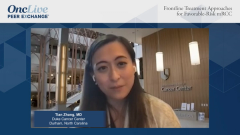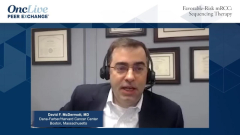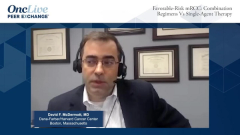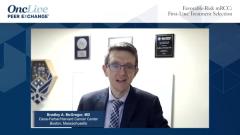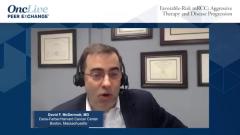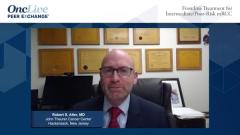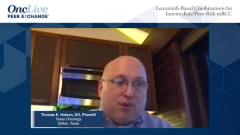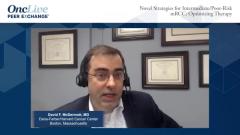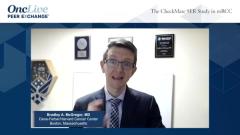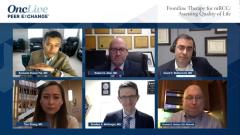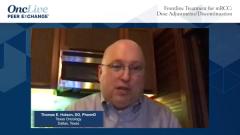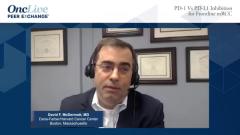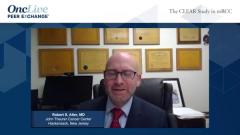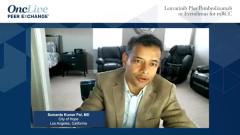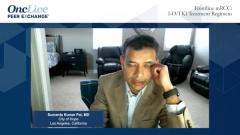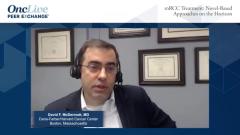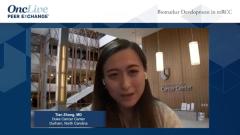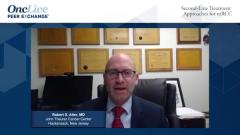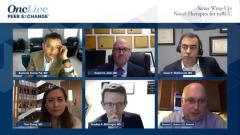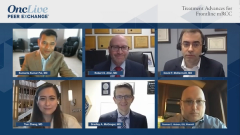
Frontline Treatment Approaches for Favorable-Risk mRCC
Current treatment approaches that can be used to treat favorable-risk metastatic renal cell carcinoma in the first-line setting and implications for individualizing therapy despite guidance provided by the IMDC criteria.
Episodes in this series

Sumanta Kumar Pal, MD: I’ve talked to each of you in different formats and sessions. I have a sense of what you might answer with, so I’m going to pit a couple of you against each other if that’s OK. I’m going to start with you, Tian. Tell us about your approach to favorable-risk disease. Brad alluded to treating based on risk categories.
Tian Zhang, MD: Treating favorable-risk disease is still 1 of the hardest questions that remain. If we’re not improving overall survival for these patients with immunotherapy-based regimens, then the treatment decision depends on the patient’s goals. I don’t think it’s 1 size fits all. I can have 3 different conversations with 3 patients and come up with 3 answers. For example, my patients could shoot for a complete response with ipilimumab-nivolumab, want faster disease control and improvement in response rates with VEGF-based immunotherapy, or even try to limit toxicities with a monotherapy VEGF inhibitor. These patients will likely see multiple lines of therapy. Picking a treatment that’s not standard for second line would be important to think about sequencing questions.
Sumanta Kumar Pal, MD: Let me push you a little harder on that, Tian. What if I put in front of you a 65-year-old man with metastatic disease to the lungs, 2 years after his initial surgery? His labs look fantastic; favorable risk by IMDC [International Metastatic Renal Cell Carcinoma Database Consortium] criteria. How are you going to treat that patient? You gave me 3 options, but which are you going to choose?
Tian Zhang, MD: It’s a patient-shared decision-making process. I would talk about the data and what that patient wanted to do. Without any contraindication for an immunotherapy, I would probably favor an immunotherapy combination. Either ipilimumab-nivolumab or VEGF I/O [immuno-oncology] combination would be standard.
Sumanta Kumar Pal, MD: Dave, let me ask you about that. I’ve talked to you about this before, and I’ve heard your perspective on favorable risk. What do you think? How would you treat that same patient?
David F. McDermott, MD: The more you look at the good-risk cohort in the CheckMate 214 data set, the better that data get. Obviously, the study was not designed to focus on that group of patients. Right now, the survival curves have crossed, favoring ipilimumab-nivolumab over Sutent. As Tian was mentioning, you see CRs [complete responses] in that group as well, and you see the ability to not only create deep responses but stop treatment in that group of patients. The treatment-free survival that we’ve looked at is 3 times longer in the good-risk group than with sunitinib alone. If the patient’s goal is not just survival but to survive off-drug, we offer them immunotherapy combination. As Tian was saying, they obviously have to be motivated. They have to be in good enough condition to handle the increased toxicity. But we aim high. We don’t let the study design and the IMDC criteria decide what we’re going to do. The IMDC criteria are great, but they’re really designed for making decisions in the area of VEGF therapy. We don’t let them dictate what we give our patients nowadays.
Transcript Edited for Clarity


